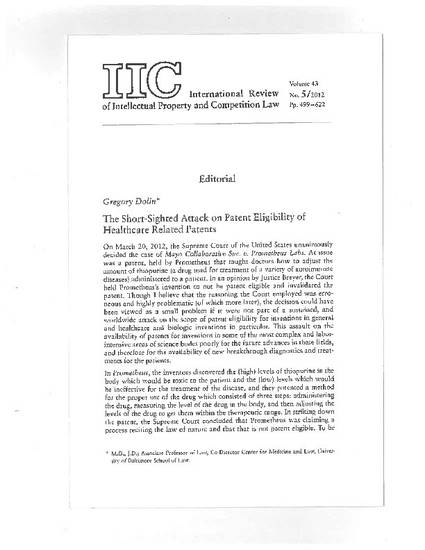
On March 20, 2012, the Supreme Court of the United States unanimously decided the case of Mayo Collaborative Svc. v. Prometheus Labs. At issue was a patent, held by Prometheus that taught doctors how to adjust the amount of thiopurine (a drug used for treatment of a variety of autoimmune diseases) administered to a patient. In an opinion by Justice Breyer, the Court held Prometheus’s invention to not be patent eligible and invalidated the patent. Though I believe that the reasoning the Court employed was erroneous and highly problematic (of which more later), the decision could have been viewed as a small problem if it were not part of a sustained, and worldwide attack on the scope of patent eligibility for inventions in general and healthcare and biologic inventions in particular. This assault on the availability of patents for inventions in some of the most complex and labor intensive areas of science bodes poorly for the future advances in these fields, and therefore for the availability of new breakthrough diagnostics and treatments for the patients.
Available at: http://works.bepress.com/gregory_dolin/49/
